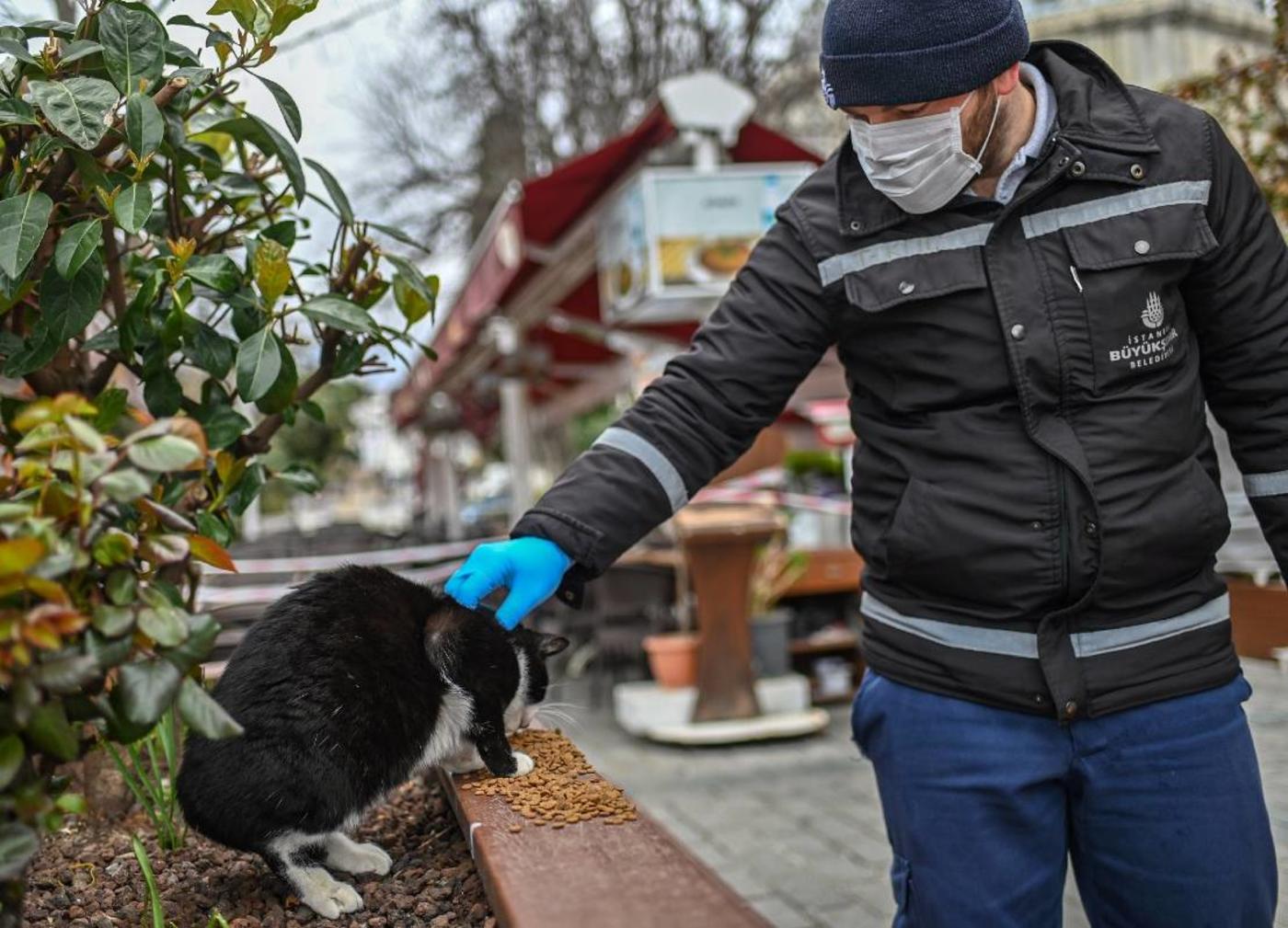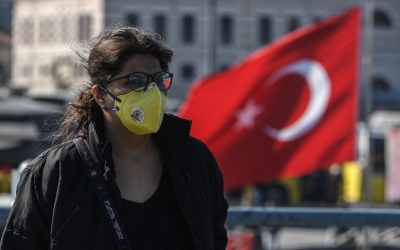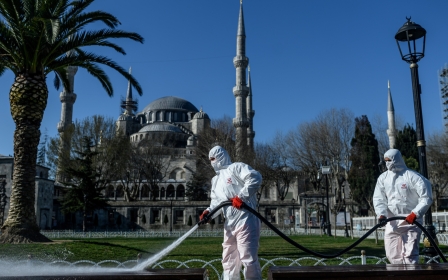Coronavirus in Turkey: Pets abandoned amid fears of contagion

Pets in Turkey are being abandoned in increasing numbers while other animals are being left to starve, as Turkey's coronavirus crisis deepens, according to animal rights activists.
Turkish media reports and misconceptions about the disease have caused many to believe that domestic animals, including dogs and cats, can pass the contagion on to humans.
By Wednesday, Turkey had recorded 63 coronavirus deaths in a single day - the highest since the beginning of the pandemic, taking the death toll to 277.
Turkish Health Minister Fahrettin Koca said in a TV statement that 2,148 people had tested positive during the last 24 hours, 600 less than the day before. "Sixty percent of the cases are in Istanbul," he added. The numbers include more than 600 health care workers who have tested positive for the virus.
New MEE newsletter: Jerusalem Dispatch
Sign up to get the latest insights and analysis on Israel-Palestine, alongside Turkey Unpacked and other MEE newsletters
Street animals starving
Pelin Sayilgan, the representative in Ankara for the Animal Rights Federation, known as Haytap, told Middle East Eye: “There has been about a 20 percent increase. People abandon their pets outside of our offices or call us and ask whether they should be leaving them to us or give them to animal shelters,”
Similar reports have come from animal rights activists in other large cities, including Eskisehir and Bursa.
Activist Emre Demir in Bursa said that there had been an increase of at least 20 percent in calls to his animal rights association, asking where animals could be left.
'Municipalities have a legal duty to feed these animals'
Haydar Ozkan, deputy chairman, HayKonfed
Another issue during the pandemic has been that many street animals cannot get enough food to survive due to the lockdown imposed on cities and towns.
One activist told Turkish media that the closure of many businesses meant there was now no leftover food for street animals.
“Many animals are hungry," Haydar Ozkan, deputy chairman of Animal’s Right to Live Confederation (HayKonfed), said.
"Municipalities have a legal duty to feed these animals. But not many of them are sensitive about it. People cannot get inside the forests or parks due to the curfew.”
Pets can't pass on Covid-19
The World Organisation for Animal Health (OIE) and World Health Organisation (WHO) have both repeatedly said that the coronavirus pandemic is spreading through human-to-human transmission.
“To date, there is no evidence that companion animals have spread the disease. Therefore, there is no justification in taking measures against companion animals which may compromise their welfare,” the OIE said in a statement.
There have been reports of the virus being transmitted from humans to dogs and cats, including a dog infected by its hospitalised owner in Hong Kong in February, but not vice versa.
The Harbin Veterinary Research Institute in China has also indicated that cats can catch the virus, but reported that there was no evidence that the animals were contagious enough to infect people.
The US Centers for Disease Control and Prevention (CDC) advises that owners with coronavirus should avoid contact with pets as they do with humans.
“When possible, have another member of your household care for your animals while you are sick. Avoid contact with your pet, including, petting, snuggling, being kissed or licked, and sharing food,” the CDC said.
Sayilgan said that the authorities in larger cities, such as Istanbul and Ankara, were trying to make a difference.
“They have established food rooms to distribute to animals in need," he said.
“On the other hand you have veterinarians who refuse to go to the animal shelters or don’t provide emergency operations in the city of Kutahya. We have to defeat this nonsense.”
Middle East Eye delivers independent and unrivalled coverage and analysis of the Middle East, North Africa and beyond. To learn more about republishing this content and the associated fees, please fill out this form. More about MEE can be found here.






